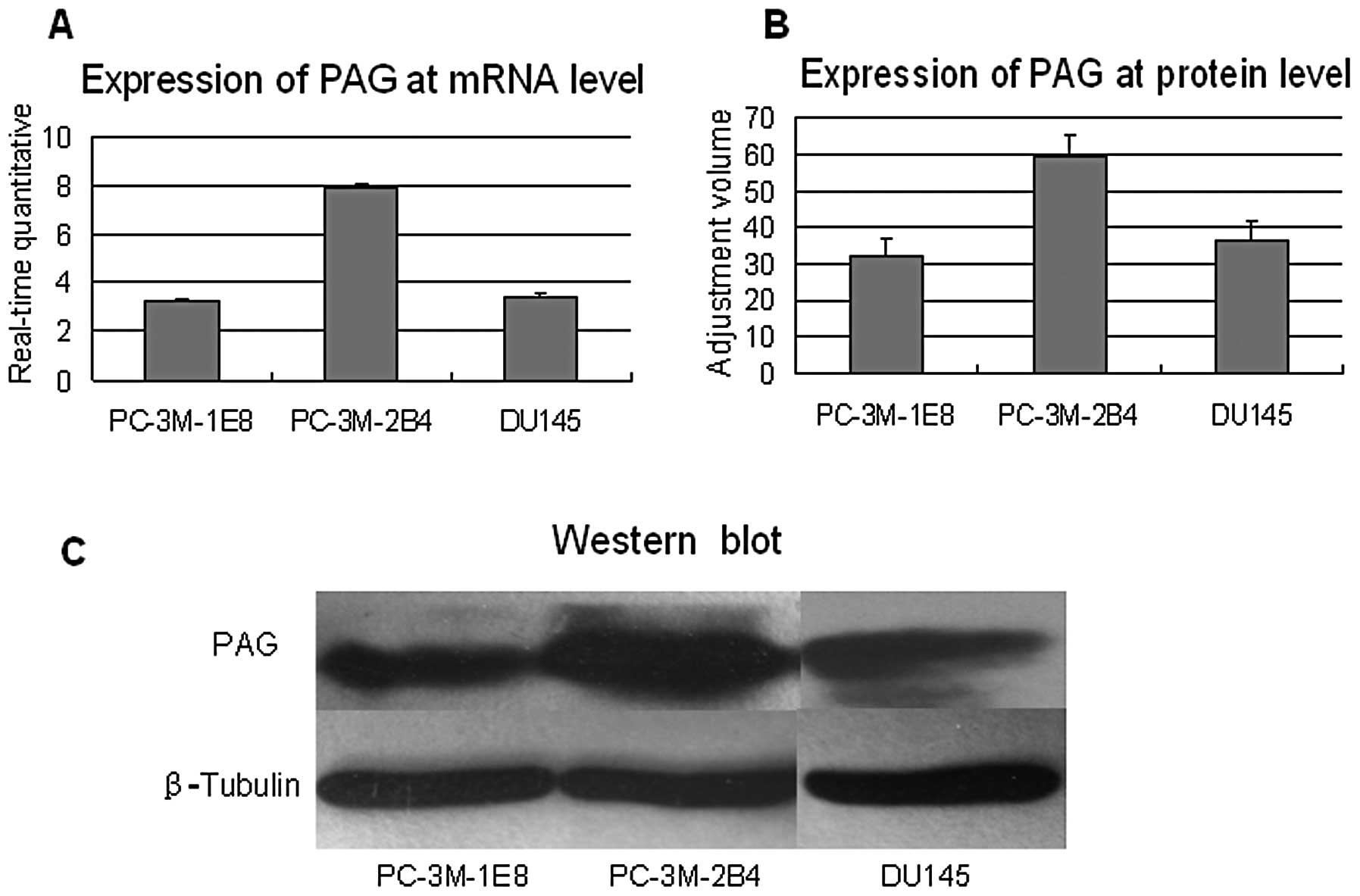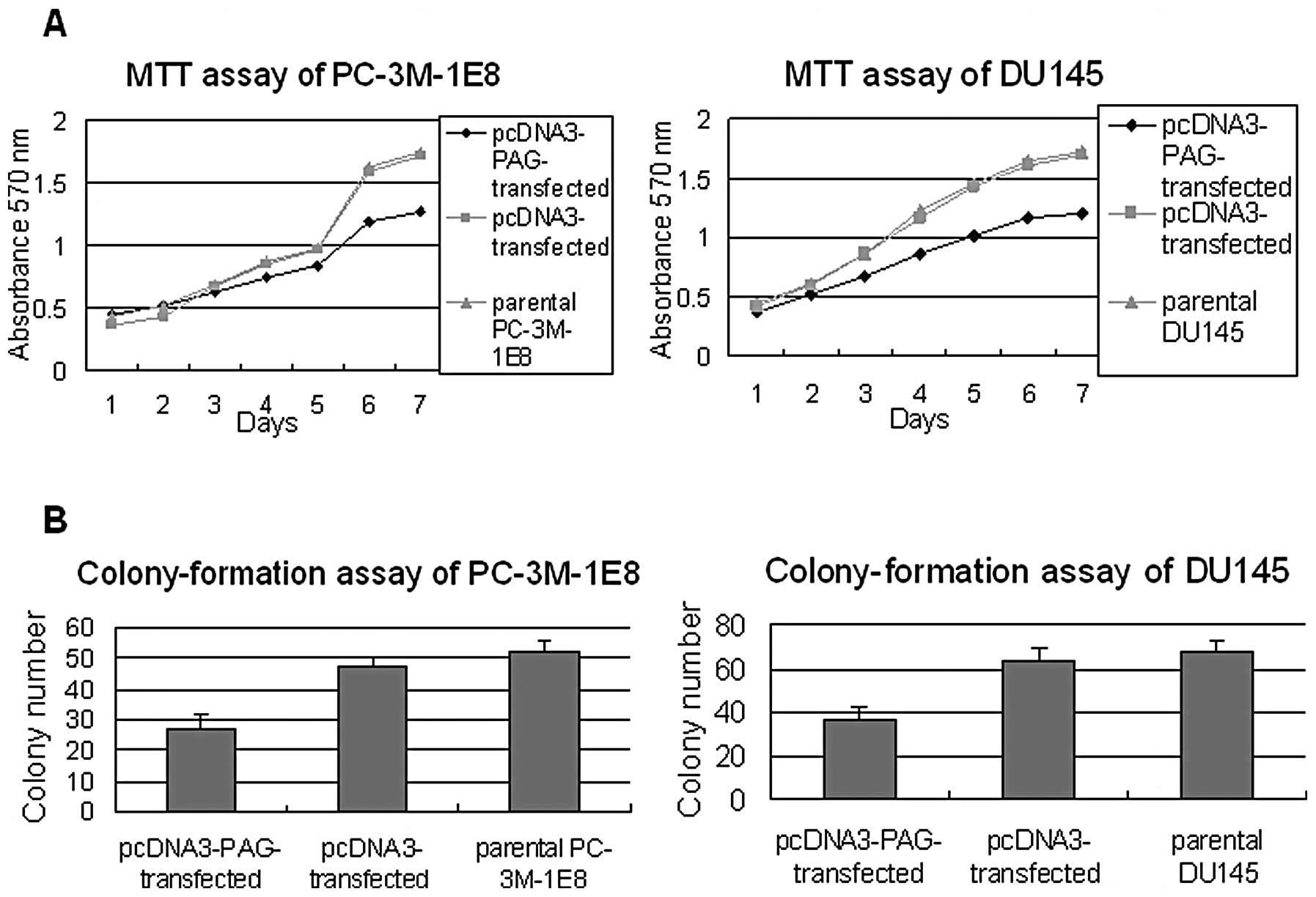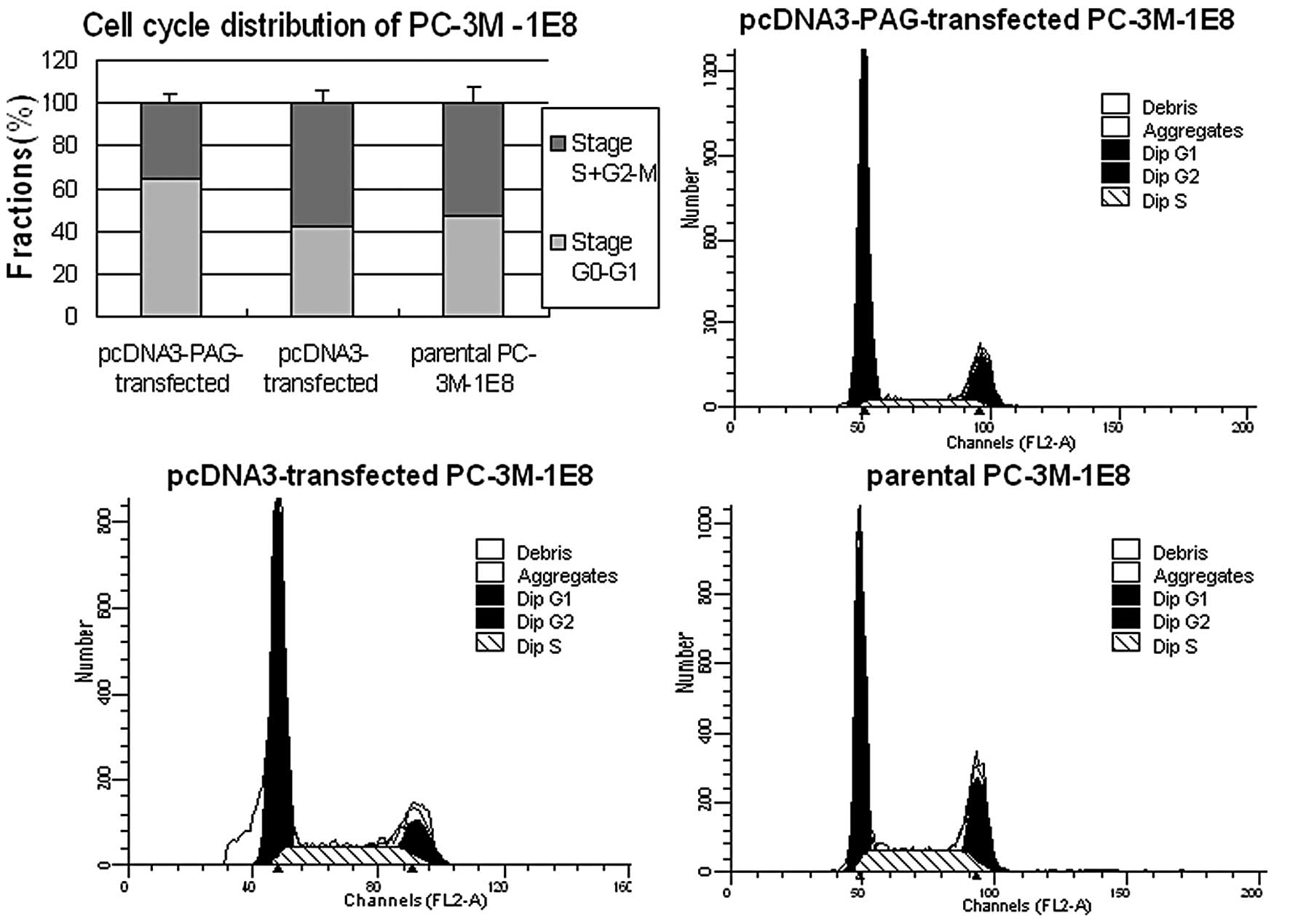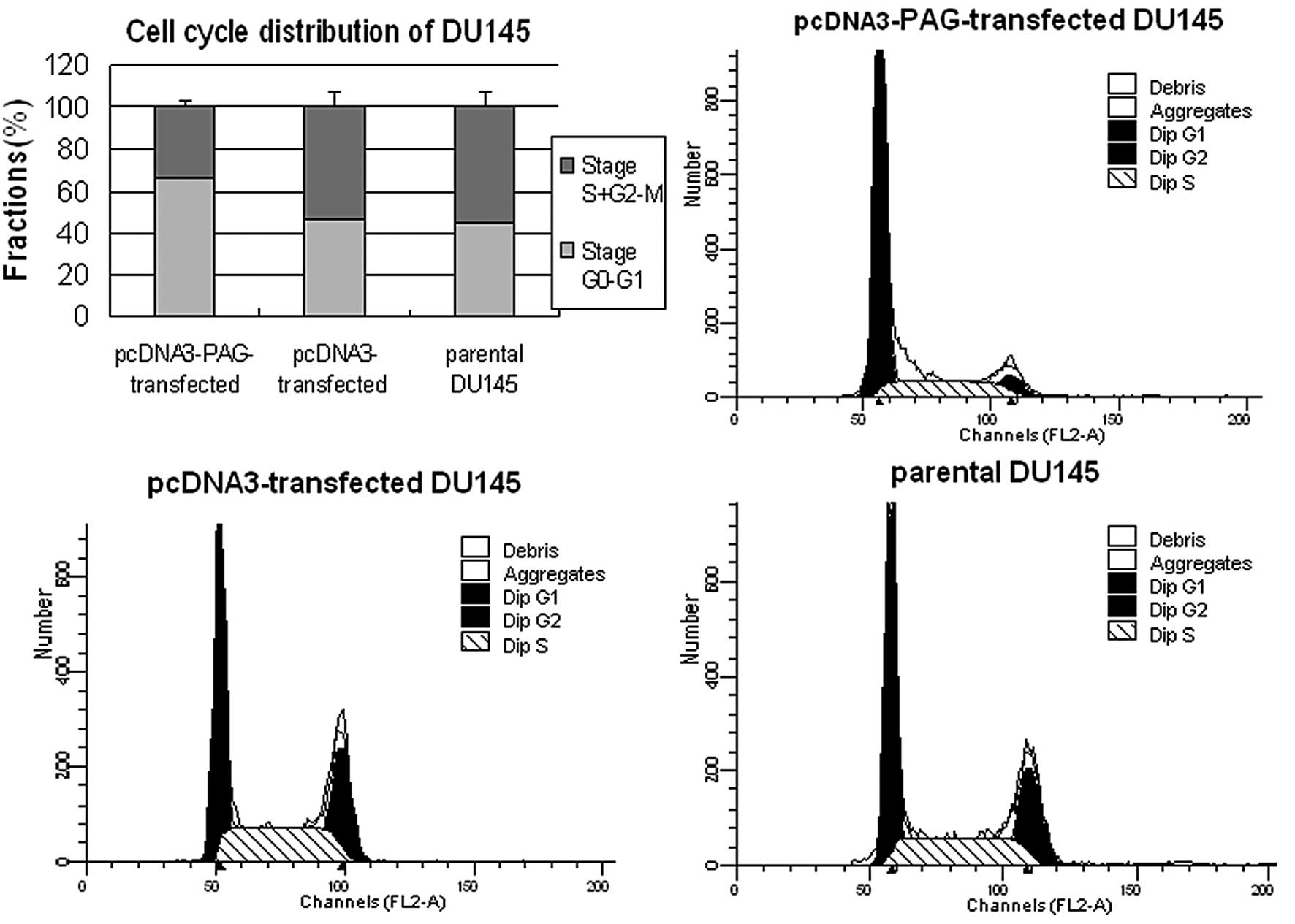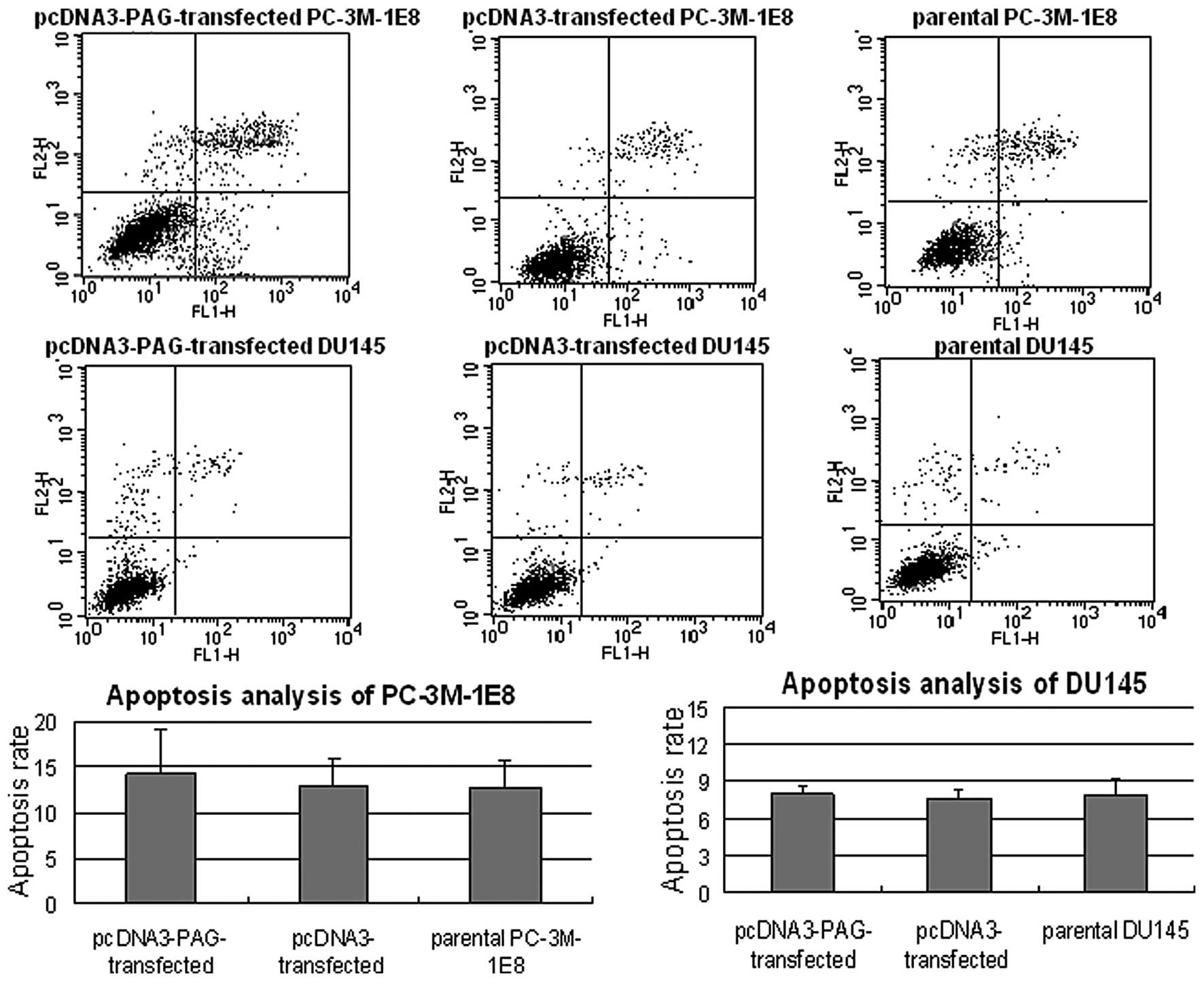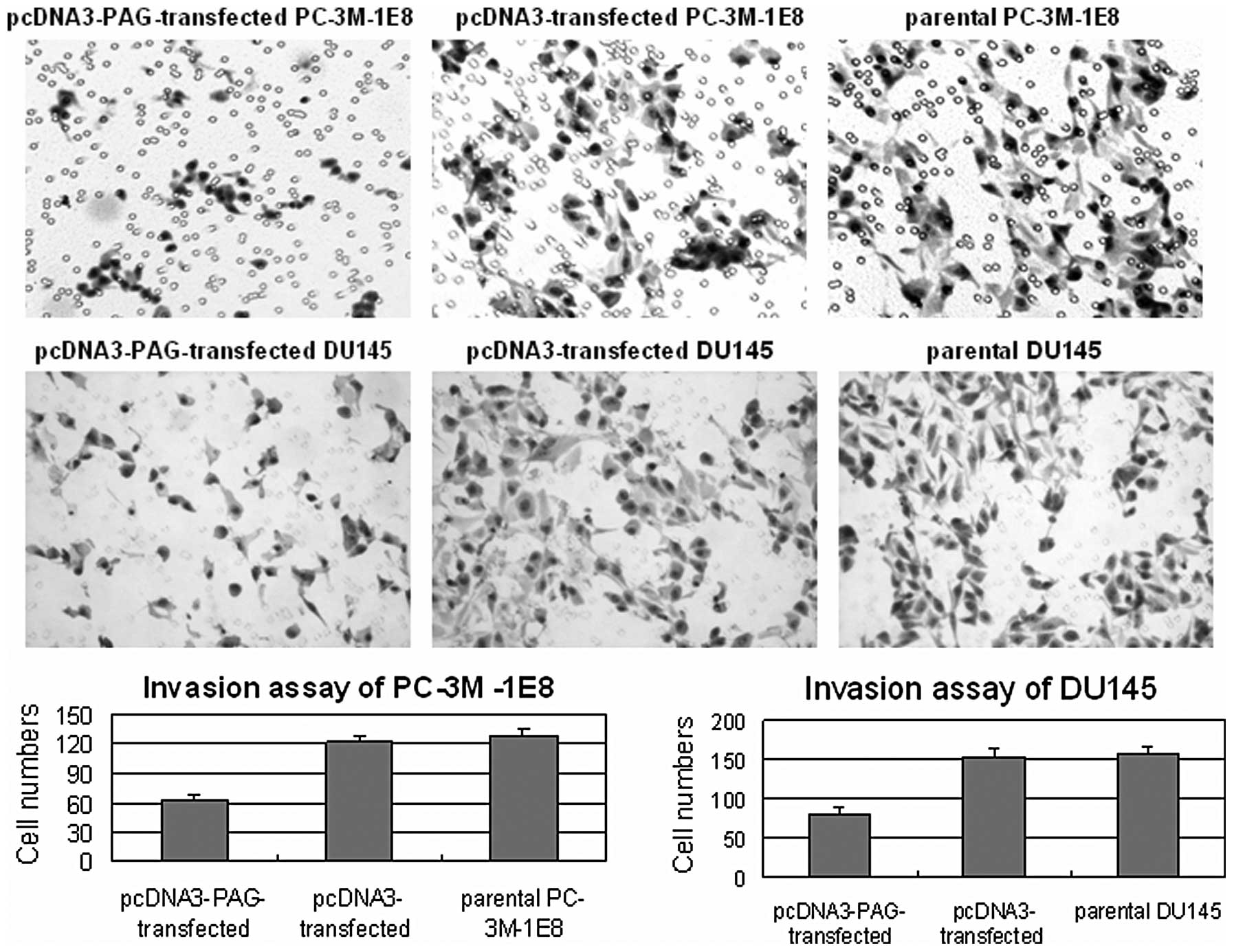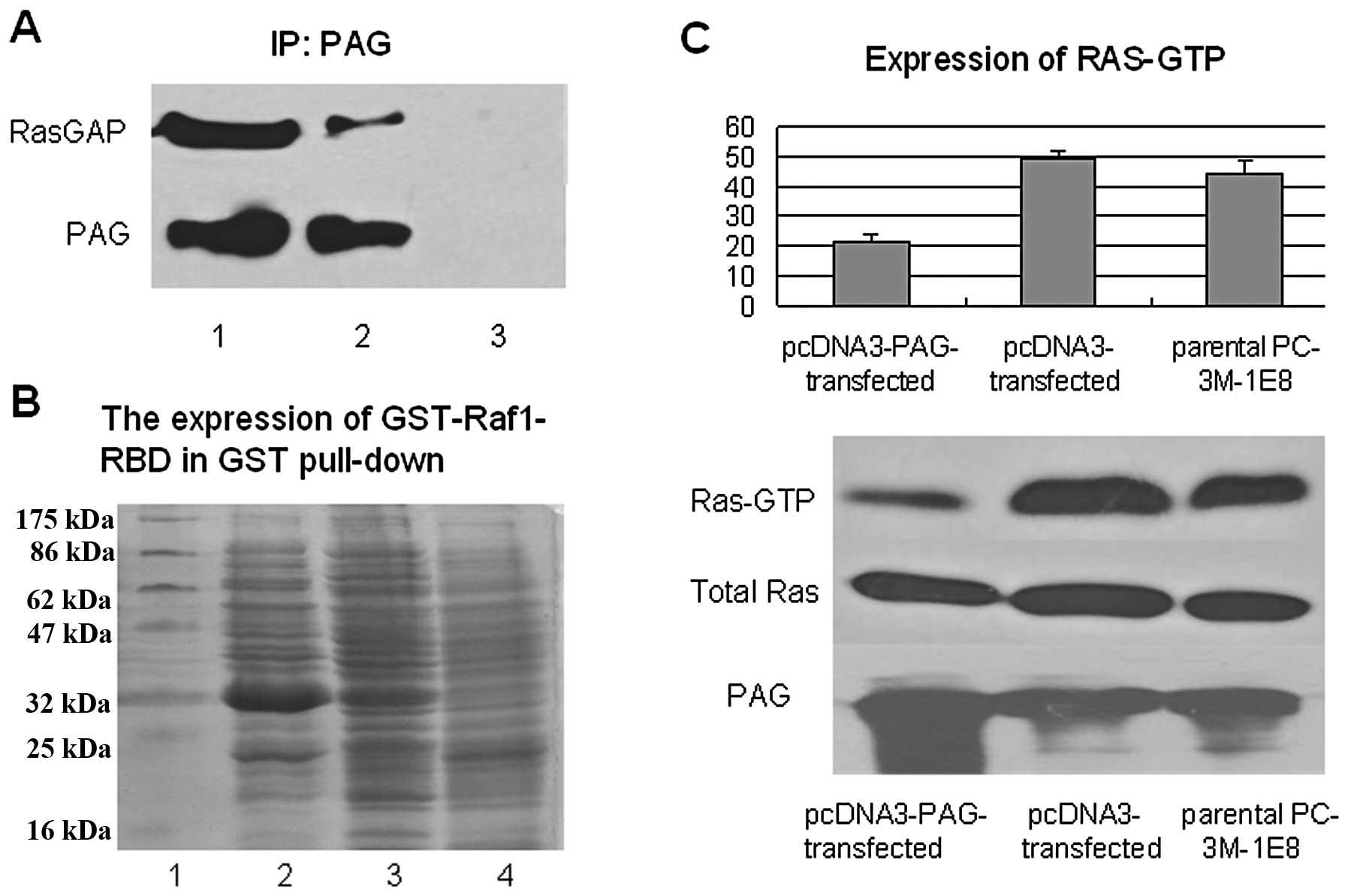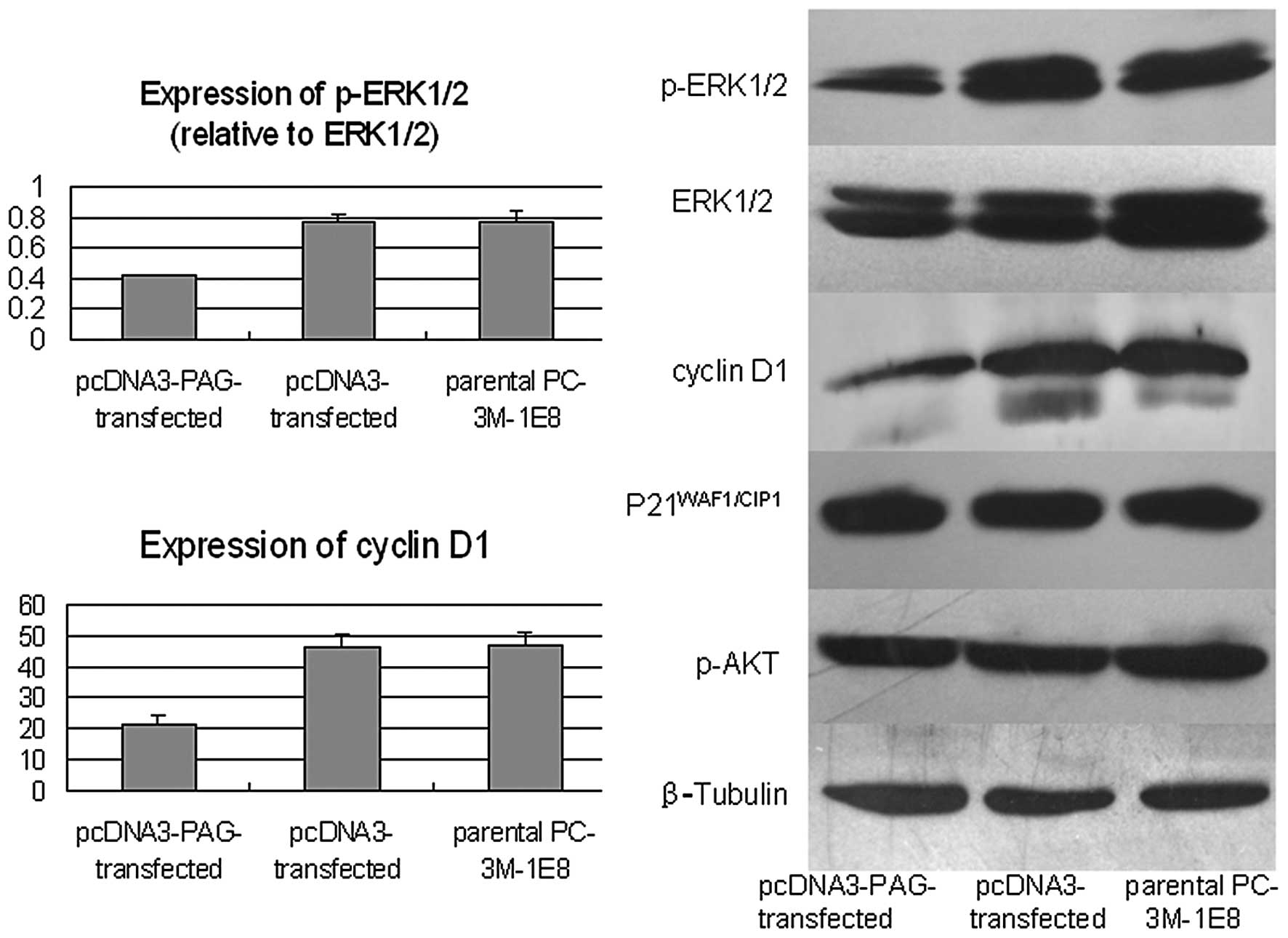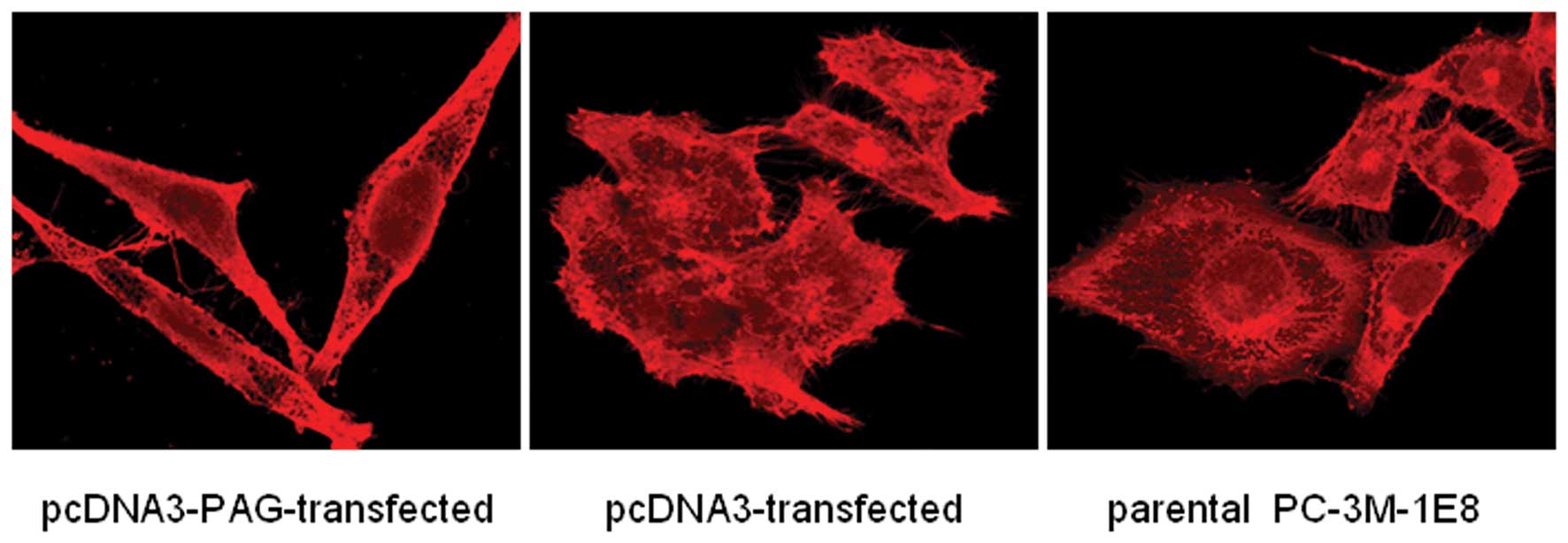|
1
|
Liu YX, Zheng J and Fang WG: Isolation and
characterization of human prostate cancer cell subclones with
different metastatic potential. Chin J Pathol. 28:361–364.
1999.PubMed/NCBI
|
|
2
|
Svec A: Phosphoprotein associated with
glycosphingolipid-enriched microdomains/Csk-binding protein: a
protein that matters. Pathol Res Pract. 204:785–792. 2008.
View Article : Google Scholar
|
|
3
|
Brdickova N, Brdicka T, Andera L, Spicka
J, Angelisova P, Milgram SL and Horejsi V: Interaction between two
adapter proteins, PAG and EBP50: a possible link between membrane
rafts and actin cytoskeleton. FEBS Lett. 507:133–136. 2001.
View Article : Google Scholar
|
|
4
|
Kawabuchi M, Satomi Y, Takao T, Shimonishi
Y, Nada S, Nagai K, Tarakhovsky A and Okada M: Transmembrane
phosphoprotein Cbp regulates the activities of Src-family tyrosine
kinases. Nature. 404:999–1003. 2000. View
Article : Google Scholar : PubMed/NCBI
|
|
5
|
Takeuchi S, Takayama Y, Ogawa A, Tamura K
and Okada M: Transmembrane phosphoprotein cbp positively regulates
the activity of the carboxyl-terminal src kinase Csk. J Biol Chem.
275:29183–29186. 2000. View Article : Google Scholar : PubMed/NCBI
|
|
6
|
Brdicka T, Pavlistova D, Leo A, Bruyns E,
Korinek V, Angelisova P, Scherer J, Shevchenko A, Hilgert I, Cerny
J, Drbal K, Kuramitsu Y, Kornacker B, Horejsi V and Schraven B:
Phosphoprotein associated with glycosphingolipid-enriched
microdomains (PAG), a novel ubiquitously expressed transmembrane
adaptor protein, binds the protein tyrosine kinase csk and is
involved in regulation of T cell activation. J Exp Med.
191:1591–1604. 2000. View Article : Google Scholar
|
|
7
|
Torgersen KM, Vang T, Abrahamsen H, Yaqub
S, Horejsi V, Schraven B, Rolstad B, Mustelin T and Tasken K:
Release from tonic inhibition of T cell activation through
transient displacement of C-terminal Src kinase (Csk) from lipid
rafts. J Biol Chem. 276:29313–29318. 2001. View Article : Google Scholar
|
|
8
|
Jiang LQ, Feng X, Zhou W, Knyazev PG,
Ullrich A and Chen Z: Csk-binding protein (Cbp) negatively
regulates epidermal growth factor-induced cell transformation by
controlling Src activation. Oncogene. 25:5495–5506. 2006.
View Article : Google Scholar
|
|
9
|
Smida M, Posevitz-Fejfar A, Horejsi V,
Schraven B and Lindquist JA: A novel negative regulatory function
of the phosphoprotein associated with glycosphingolipid-enriched
microdomains: blocking Ras activation. Blood. 110:596–615. 2007.
View Article : Google Scholar
|
|
10
|
Durrheim GA, Garnett D, Dennehy KM and
Beyers AD: Thy-1 associated pp85–90 is a potential docking site for
SH2 domain-containing signal transduction molecules. Cell Biol Int.
25:33–42. 2001.PubMed/NCBI
|
|
11
|
Sanchez-Margalet V and Najib S: Sam68 is a
docking protein linking GAP and PI3K in insulin receptor signaling.
Mol Cell Endocrinol. 183:113–121. 2001. View Article : Google Scholar : PubMed/NCBI
|
|
12
|
Huang KT, Chen YH and Walker AM:
Inaccuracies in MTS assays: major distorting effects of medium,
serum albumin, and fatty acids. Biotechniques. 37:406–412.
2004.PubMed/NCBI
|
|
13
|
Simeoni L, Smida M, Posevitz V, Schraven B
and Lindquist JA: Right time, right place: the organization of
membrane proximal signaling. Semin Immunol. 17:35–49. 2005.
View Article : Google Scholar : PubMed/NCBI
|
|
14
|
Cloutier JF, Chow LM and Veillette A:
Requirement of the SH3 and SH2 domains for the inhibitory function
of tyrosine protein kinase p50csk in T lymphocytes. Mol Cell Biol.
15:5937–5944. 1995.
|
|
15
|
Itoh K, Sakakibara M, Yamasaki S, Takeuchi
A, Arase H, Miyazaki M, Nakajima N, Okada M and Saito T: Cutting
edge: negative regulation of immune synapse formation by anchoring
lipid raft to cytoskeleton through Cbp-EBP50-ERM assembly. J
Immunol. 168:541–544. 2002. View Article : Google Scholar : PubMed/NCBI
|
|
16
|
Harder T and Simons K: Clusters of
glycolipid and glycosylphosph atidylinositol-anchored proteins in
lymphoid cells: accumulation of actin regulated by local tyrosine
phosphorylation. Eur J Immunol. 29:556–562. 1999. View Article : Google Scholar
|
|
17
|
Condeelis JS, Wyckoff JB, Bailly M,
Pestell R, Lawrence D, Backer J and Segall JE: Lamellipodia in
invasion. Semin Cancer Biol. 11:119–128. 2001. View Article : Google Scholar : PubMed/NCBI
|















